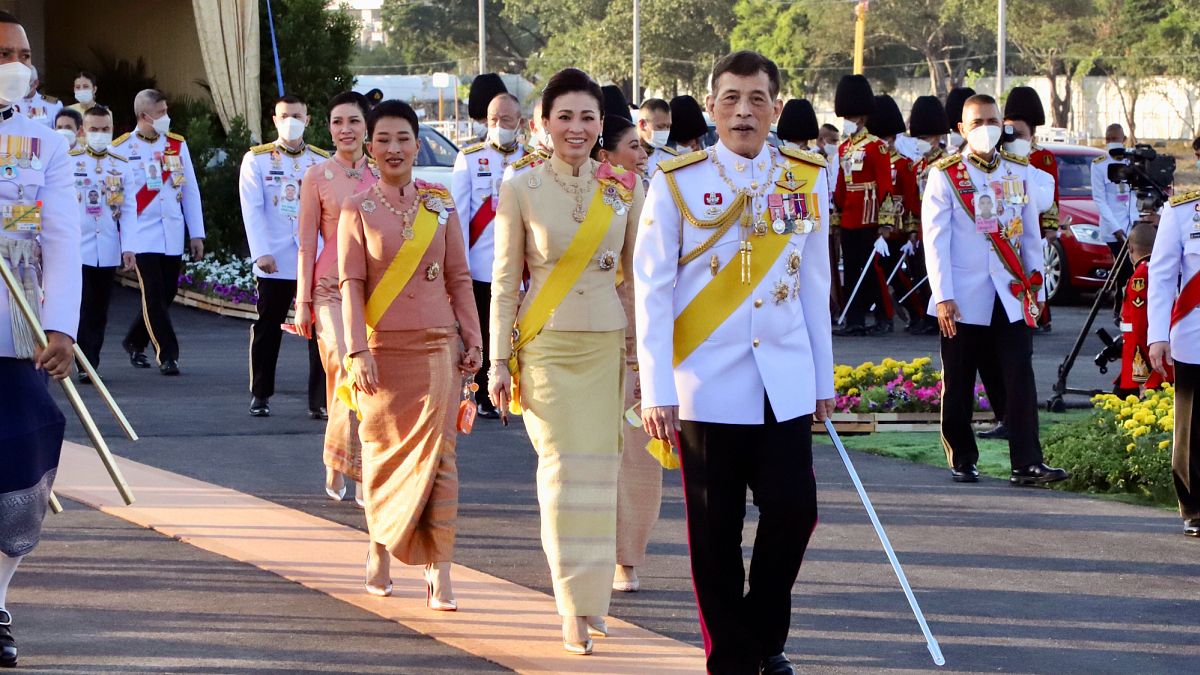The US has said it is “alarmed” by the arrest of an American academic in Thailand who has been charged with insulting the country’s monarchy.
Paul Chambers, a lecturer at Naresuan University who specialises in the Thai military, could face years in prison if convicted under the country’s strict lèse-majesté laws.
Under article 112 of the Southeast Asian nation’s penal code, a single charge of insulting the king, the queen, the heir apparent or the regent carries a maximum 15-year jail sentence.
Chambers has also been charged under the Computer Crimes Act, which is punishable by up to five years in prison.
The 58-year-old from Oklahoma, who denies all the charges, was placed in pre-trial detention on Tuesday and his request for bail was refused.
The US State Department said in a statement that it would offer him consular assistance.
“This case reinforces our longstanding concerns about the use of lèse-majesté laws in Thailand. We continue to urge Thai authorities to respect freedom of expression and to ensure that laws are not used to stifle permitted expression,” it added.
Chambers, who was first summoned by police last week to hear the charges made against him, is being held in Phitsanulok provincial prison.
A court denied him bail on Tuesday, allegedly because of “the severity of potential punishment” and because he is deemed a flight risk, according to the Thai Lawyers for Human Rights, a legal advocacy group.
Although hundreds of Thai citizens have been sentenced in recent years to long prison sentences for supposedly insulting the monarchy, it is rare for article 112 to be invoked against a foreigner.
Human rights groups are calling for Chambers’ immediate release over what they describe as “groundless charges.”
“The Thai authorities have long used the royal insult law to abuse Thai citizens but now seem intent on violating the rights of foreigners,” said Elaine Pearson, Asia director at Human Rights Watch.
“The baseless prosecution of Paul Chambers poses a serious threat to academic freedom and free speech in Thailand.”
The Thai army, which has staged 13 coups since Thailand became a constitutional monarchy in 1932, filed the complaint about Chambers, saying he was responsible for a blurb advertising an academic webinar that it alleged was critical of the Thai monarchy.
The webinar — entitled “Thailand’s 2024 Military and Police Reshuffles: What Do They Mean?” — was held by the ISEAS–Yusof Ishak Institute, a Singaporean think tank, in October last year.
Chambers’ wife, Napisa Waitoolkiat, who is the dean of the social sciences faculty at Naresuan University, said her husband had not written the text.
“It just feels like they wanted to deter Paul from doing his work and research, which often touches on topics like the economics of the Thai army,” she said, noting that her husband had not been questioned by police before his arrest warrant was issued, as is usually the case.
Since early 2020, more than 270 people, including many student activists, have been charged with insulting the monarchy, according to the Thai Lawyers for Human Rights.
Last January, a Thai man was given a 50-year prison sentence under the lèse-majesté laws.

